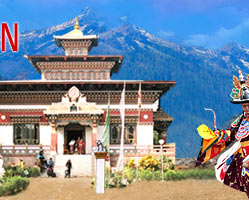- AIDS
- Altitude Sickness
- Chickungunya
- Cholera
- Dengue Fever
- Escherichia ColiDiarrhea
- Filariasis
- Hepatitis A
- Hepatitis B
- HIV
- Insect-born Diseases
- Japanese Encephalitis
- Leishmaniasis
- Malaria
- Motor Vehicle Trauma
- Onchocerciasis
- Parasitic Diseases
- Plague
- Snake Bite
- Toxoplasmosis
- Travelers’ Diarrhea
- Tuberculosis
- Typhoid Fever
Abstain from sex with the locals or use latex condoms to keep yourself safe from Hepatitis B, other STDs and AIDS. Yellow fever is quite rare and uncommon in Bhutan nowadays and you are at low risk there but you may be asked to show the vaccination certification for the entry in the country. To prevent contacting contagious diseases in Bhutan, you should get following medical vaccinations done:
- Diphtheria, booster dose as needed
- Hepatitis A or Immune Globulin (IG)
- Hepatitis B, especially if you are going to stay in Bhutan for over six months, have sexual contacts with local people, may be exposed to blood such as health care workers or getting some medical treatment there
- Japanese Encephalitis, only needed if you are planning to visit a trip to rural areas for more than four weeks
- Measles, booster dose as needed
- Polio
- Rabies, if you may come in contact with wild or domestic animals because of your work or while traveling
- Tetanus, booster dose as needed and
- Typhoid is very important because some of the strains of causative agent there is quite resistant.
Medical care in Bhutan is substandard. Hospitals do not have latest technology at hand and only a limited number of beds. Heed to consular warnings against travel to the country and check for latest updates and advice regarding the health issues in the country, before your departure.




